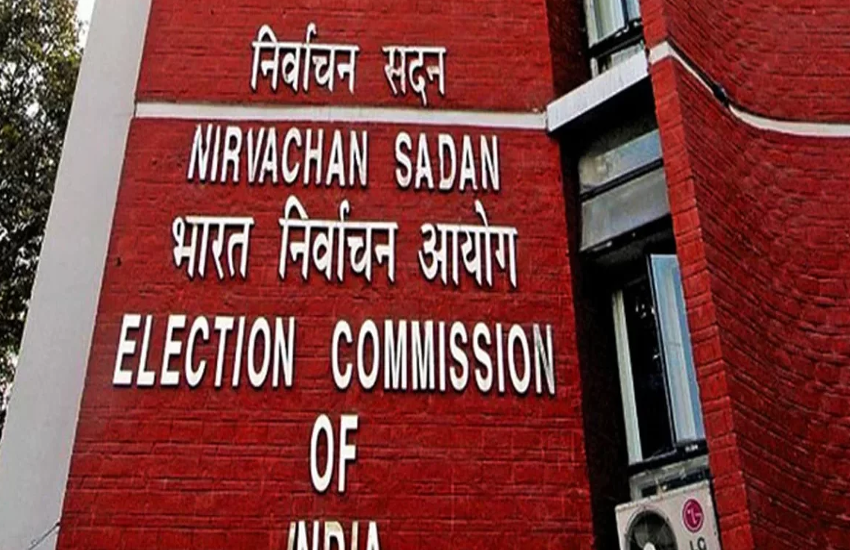Why is the IMF afraid of questioning India's GDP numbers?

Indian economy
- India is the fastest growing economy while China is losing steam
- India is projected to grow at 7.6% in 2015-16
The data
- Indian exports have fallen for 15 months straight
- Index for industrial production has shrunk for 3 months in a row
- January contraction stood at -1.5%
More in the story
- Why isn\'t the IMF more prudent in supporting India\'s growth numbers?
- Can IMF espousing India\'s data mislead the global investors?
- Can India bring credibility to its growth numbers?
Never before has the Indian economy been so important for the global investors than today. It is the fastest growing economy in the world. This comes at a time when China's economy is loosing steam, leaving world's investors in a lurch. India is projected to grow at 7.6% in 2015-16. And between 7-7.5% in 2016-17.
But let's pause and take a look at the following data:
-Indian exports fell for the 15th month on the trot in February.
-Index for industrial production has shrunk for 3 months in a row. Back in January, the contraction was -1.5%
Based on these two numbers itself, it would be difficult for the Central Statistics Office's (CSO) to justify its advance estimate of 7.6% GDP growth for the current fiscal. Based on the first three quarters of growth, the economy must grow at 7.9% in the January-March quarter.
Also read - Sensex back to pre-Modi days: Is IMF right in calling India a bright spot?
Support for India
Many economists have questioned the CSO data on India's GDP in the past two years. But the Indian government has found support from International Monetary Fund, that has supported India's data.
In her recent tour to India, International Monetary Fund (IMF) head, Christian Lagarde, reiterated faith in India's growth numbers and maintained her stance that India is a 'bright spot in the world'.
India may be a bright spot in the world at a time when the Chinese economy is slowing down after two decades of double digit growth. Despite senior economists in the country constantly raising a red flag, the IMF is blindly believing India's growth numbers. Why is this the case?
After all, based on the IMF projections, a lot of foreign investors take their investment decisions.
Shouldn't the IMF be more prudent in adopting India's growth numbers?
IMF and India's growth numbers
A professor at the National Institute of Public Finance and Policy, who chose to remain anonymous, had this to say, "IMF economists don't know much about India. And IMF can't be seen questioning the Indian statistics in public".
In an article written in Mint, Rajeswari Sengupta Assistant Professor of Economics at Indira Gandhi Institute of Development Research, has claimed that India's real growth rate is just 5% as opposed to CSO's projection of above 7%.
She made her argument on the basis of relation between the Wholesale price index - which has 70% weightage of commodities - and gross value addition.
Also read - Explained: the great power shift in IMF and how it favours India & China
If India's growth numbers are misleading and IMF is taking CSO data without looking at the micro numbers from the Indian economy, what could be the fate of the global investors who want to invest in India?
Can IMF espousing India's data mislead the global investors?
According to R Nagaraj, Professor at Indira Gandhi Institute of Development Research, "Yes, they may be misled. But, I guess they will also use inputs from brokerage houses and investment advisers, who will probably tell a different story".
Nagraj, may be right, as the global investors seem to have already rejected the claims of the Indian government as well as that of the IMF.
As per data released by the Secretariat for Industrial Assistance, the country attracted investment proposals worth Rs 3.11 lakh crore in the manufacturing sector in 2015 as against Rs 4.05 lakh crore in 2014, a decline of over 23%. Which is significant because the Rs 3.11 lakh crore investment pledged is the lowest in 11 years.
If India was growing at 7% plus growth rate, why would investors be shying from investing in India?
The Indian investors have not been investing in India for the last two years.
According to Centre for Monitoring Indian Economy (CMIE) data, new project announcements during October-December fell for the first time in five quarters to Rs 1.05 lakh crore, which is 74% lower compared to last year.
Clearly, the micro numbers do not support the claims of the Indian government. This has also reflected in the stock market which has fallen over the past year from a peak of 30,000 in March 2015 to less than 25,000. A few weeks ago, it had even gone below the 24,000 mark.
Can India bring credibility to its growth numbers?
The only way to do this would be to set up an independent committee with members from different key institutions to evaluate India's growth numbers. Ajay Chibber, visiting professor at National Institute of Public Finance and Policy says "there should be an independent panel to review the GDP numbers to re-establish trust and credibility in them ".
But, does the NDA government care for credibility? That's a big question. Something only time will tell.
Edited by Sahil Bhalla
More in Catch - Jaitley thanks IMF for recognising India as 'bright spot'
IMF says India to grow faster than China at 7.5%; bad news for global growth though
First published: 25 March 2016, 8:00 IST






![BJP's Kapil Mishra recreates Shankar Mahadevan’s ‘Breathless’ song to highlight Delhi pollution [WATCH] BJP's Kapil Mishra recreates Shankar Mahadevan’s ‘Breathless’ song to highlight Delhi pollution [WATCH]](https://images.catchnews.com/upload/2022/11/03/kapil-mishra_240884_300x172.png)

![Anupam Kher shares pictures of his toned body on 67th birthday [MUST SEE] Anupam Kher shares pictures of his toned body on 67th birthday [MUST SEE]](https://images.catchnews.com/upload/2022/03/07/Anupam_kher_231145_300x172.jpg)






